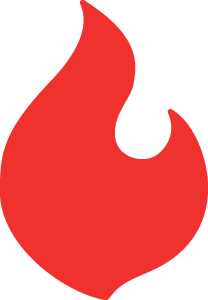Here’s a bright patch amidst the COVID-19/Coronavirus black out: a pandemic can bring out the best in us.
Across our feeds in the past month, in contrast to bleak panic, stocks taking a nosedive, and hoarding spreading (TP, we’ve never appreciated you more), a new, well-considered wave of “reaction” has appeared: brands taking action to curb COVID-19’s impact. From dramatic acts of generosity minimizing job loss to creating entirely new products to fill shortage gaps, stories from companies and organizations around the globe are here to remind us all that life is never 100% anything, especially hopeless.
- Delta Airlines CEO, Ed Bastian, gives up entire salary for the next six months
Delta CEO Ed Bastian. Image: Delta Airlines.
On March 13, Delta’s CEO Ed Bastian sent a memo to all Delta employees titled “The Challenge Facing Us — COVID-19 Impact Growing Rapidly.” It’s relatively brief, and incredibly clear. The speed of the demand fall-off is “unlike anything we’ve seen – and we’ve seen a lot in our business.” That includes 9/11.
Bastian outlined several ways the company is moving quickly to preserve cash and protect the airline, including reducing its overall capacity by 40% over the next few months — the largest capacity reduction in Delta’s history — and cutting annual expenditures by at least $2 billion. He also offered employees the option to take unpaid leave if it works for them and their families, before announcing that effective immediately, and for the next six months, he will no longer receive a salary himself. Who knows how many jobs his decision has helped save? At the very least, it will buy everyone more time as we wait to see the Coronavirus’s long-term impact.
In closing, the CEO referenced Delta’s values as everyone’s North Star. “I know many of the newer members of the Delta family have never experienced this level of uncertainty in our business. Your veteran colleagues will tell you that we have been through turbulent times before, and what has always carried us through has been our commitment to our values, our culture and each other. I am confident that we will emerge from this crisis as a strong, trusted global brand that truly connects the world like no other. And we will be stronger for having gone through this experience.”
Does this story affect your view of Delta at all? Are you anymore likely to use them over other airline providers in the future?
2. Couture vs. COVID-19: LVMH, luxury fashion conglomerate of Louis Vuitton and Dior, begins manufacturing hand sanitizer Photo: Getty Images
You have to wonder what effect the COVID-19 crisis will have on different industries, even the fashion world. Does a crisis urge consumers to consider “essentials” only , or when we’re shuttered up, do we look to online shopping to give us buyer’s buzz and feel a bit better?
A recent article by GQ explains that fashion companies are “caught between urges to keep calm and carry on, and to channel energy toward providing relief during the crisis.” It’s no surprise that given Italy’s critical vulnerability to the virus, brands like Dolce & Gabbana and Armani have made large donations to organizations battling COVID-19. Then, when we look west to France, luxury conglomerate LVMH has chosen a different strategy—redirecting the company’s significant resources towards creating a product that directly combats the virus: hand sanitizer gel. But how so quickly? Using resources already available in their own perfumeries.
As a reminder, this isn’t a new concept. During WWII, fashion brands and lots of manufacturers across the Western world joined efforts with their governments to create products for the war effort. France and the UK faced clothing rations as materials and manufacturers were urged to make wartime equipment and uniforms instead. But during that time, austerity drove designers to ingenuity. And perhaps that’s a ripple-effect for us all to consider.
How will COVID-19 and its new challenges invoke innovation? LVMH has shown us one way. Who will be next?
3. #TogetherAtHome: Global Citizen and The World Health Organization Launch Virtual Concert Series to promote unity during Social Distancing Protocols Image: Twitter
And it’s everything. Coldplay’s Chris Martin kicked off the Instagram LIVE series while holed up in his own home. “The right thing to be doing is staying home … and not buying too much toilet paper,” the singer/songwriter said while sitting at his piano and reading fans’ LIVE comments from his smartphone. He has joined amazing artists around the world (John Legend’s own in-house concert went LIVE the next day) to combat the feelings of isolation and anxiety we’re all feeling, in every corner of the world. But apart from sparking a sense of unity, there’s an equally important response necessary: for us all to take action by donating and calling for more funding for WHO’s COVID-19 Solidarity Response Fund.
Watch the magic below.
4. Microsoft, Amazon, and other Seattle-based companies launch relief fund for nonprofits and government organizationsDowntown Seattle, Washington, USA – Image: iStock
“Support local” takes on a new meaning when your own community finds itself at the epicenter of a Coronavirus outbreak—the reality for Seattle and Seattle-based companies. But as the number of cases and deaths rise, so does the number of corporate responders. And that’s a beautiful thing to see.
Microsoft, Amazon, and other Seattle-area companies have partnered with nonprofits and governments to launch a relief fund to counteract the recent outbreak. The COVID-19 Response Fund, hosted by Seattle Foundation, provides grants to organizations helping at-risk populations, including workers unable to take sick leave, those without health insurance, and healthcare workers.
Microsoft contributed $1 million to the COVID-19 Response Fund, which directly supports rental assistance set up to keep people in their homes; helping ensure seniors and families have access to food; and supporting healthcare workers on the front line. And for any Microsoft employees who contribute, the company will match their donations as well.
For now, Amazon has also donated $1 million to the fund, with The Starbucks Foundation contributing another $250,000. The remaining donations come from other partners, including Alaska Airlines, United Way of King County, King County, and the City of Seattle.
Amazon General Counsel David Zapolsky justified the fund’s creation as this: “There are urgent needs across the Puget Sound region, and it’s particularly important that the most vulnerable in society are supported during this difficult time for our community. The COVID-19 Response Fund is an excellent example of nonprofits, governments, and businesses coming together quickly with an innovative approach to an unprecedented issue.”
We couldn’t agree more.
Love to our Greenville family and beyond x
The post Brands vs. Coronavirus appeared first on FUEL.







